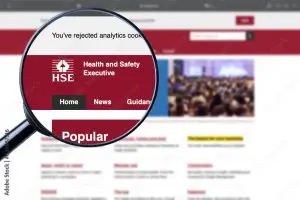How safe is safe enough?
Use this general health and safety survey to assess staff awareness, highlight unseen risks, and strengthen your compliance with UK health & safety law — all anonymously, and all in one place.
It covers employee responsibilities, incident reporting, hazard identification, emergency procedures, first aid awareness, and more — helping you meet regulatory expectations while building a safer workplace culture.
Risk & Reporting
Are hazards being spotted and acted on?
First Aid & Support
Is your response plan known and trusted?
Wellbeing & Mental Health
Are you meeting modern expectations?
Policy Awareness
Do staff understand their responsibilities?
Emergency Procedures
Do they know what to do — and where to go?
This survey aligns with:
-
The Health and Safety at Work Act 1974
-
Management of Health and Safety at Work Regulations 1999
-
HSE guidance

Built to Meet UK H&S Law
Built To Work Across Industires




What the survey covers
-
15 Expert Statements
Carefully crafted by compliance and safety professionals, our 15-question survey covers all the essentials — from legal responsibilities and incident reporting to wellbeing and emergency preparedness
-
Anonymous scale + free text
Each statement is measured using a 5-point Likert scale, with optional free-text input. This empowers staff to speak freely — and gives you both quantitative trends and qualitative insight.
-
PDF-ready reports
Once responses are in, your results are automatically transformed into clear, well-formatted reports. Perfect for sharing with leadership, inspectors, or storing for audit trails.
-
Instant Deployment
Launch your survey with a single click. Your unique survey link is ready to share across email, intranets, or QR codes — no waiting, no integrations required.
-
No Setup Fuss
No technical know-how needed. Everything runs through your BlindReport dashboard, so you can focus on understanding results, not managing software.

Q&A: Identify gaps, gather audit-ready insight, and meet your duties
Do employees understand their health and safety responsibilities?
Employees must know what’s expected of them. This statement ensures staff are aware of their own legal duties in maintaining a safe workplace.
Are policies and procedures clearly communicated and accessible?
HSE expects policies to be shared and understood, not buried in folders. This question checks visibility and clarity.
Has everyone received the right training for their role?
Regulation 13 of MHSWR makes this a legal requirement. This checks whether your training is reaching and resonating with your people.
Do staff know what to do in an emergency?
Fire drills, evacuations, lockdowns — this statement ensures staff feel confident about your emergency response protocols.
Is your Health & Safety Law Poster (or equivalent) visible to staff?
Legally required in all workplaces. This statement confirms that basic legal signage isn’t being overlooked.
Are hazards being identified and addressed in a timely way?
A fundamental duty under Reg 3 of MHSWR. This assesses whether staff observe proactive hazard management.
Can employees report concerns without fear of consequences?
Encouraging openness without fear is key to building a strong safety culture — and aligns with whistleblowing protection.
Is there a clear process for reporting incidents and near misses?
This reflects your obligation to investigate and record events under RIDDOR and internal safety policy.
Does management act on health and safety concerns quickly?
This reflects your accountability in responding to raised concerns. It supports continuous improvement and legal defensibility.
Is the workplace kept tidy and free from preventable hazards?
A clean, orderly environment is a core requirement under the Workplace (Health, Safety and Welfare) Regulations.
Is equipment safe, suitable, and well-maintained?
This supports legal duties under PUWER and LOLER. Poorly maintained equipment is a common root cause in HSE prosecutions.
Do staff know where to go for first aid or medical support?
You’re required to provide trained first aiders and make staff aware of them. This question checks practical awareness, not just coverage.
Is staff wellbeing (physical and mental) considered in H&S planning?
The HSE expects you to assess risks related to stress, workload, and physical comfort. This shows you care beyond slips and trips.
Does your organisation actively support mental health and stress risks?
This reflects modern safety leadership. HSE’s standards on managing stress now form part of many inspections.
Do staff feel safe, overall, in their day-to-day work environment?
This is your cultural litmus test — and can reveal whether your policies are making a difference on the ground.

